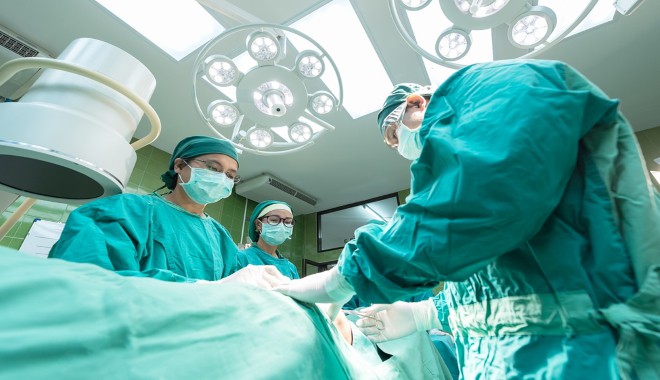From refractive errors to cataract, many eye conditions can nowadays be treated with eye surgery. And with the increasing popularity that laser eye surgery has been gaining throughout the last couple of decades, many people opt for exactly this type of treatment. It’s a safe and efficient way of dealing with various eye problems, and most of these surgeries are now performed routinely. However, there are certain steps you have to take to get ready for the procedure and to recover from it as fast and as smoothly as possible. If you’re wondering what those steps are, here are some answers.
Find a doctor
If you’re aware of the problem you have with your eyes and you want to have a laser eye surgery to fix it, you’ll want a reliable specialist to perform the procedure. You can go online and browse through the clinics and the doctors who work there, and then find reviews from their previous patients. Also, the price can be somewhat of a guide. If you see that the price somewhere is much lower than the prices of the competition, it may mean that that their equipment is outdated, or that something else is wrong, so be especially careful in such cases. Finally, the best you can do is talk to people you know who have undergone the surgery and ask for their recommendations. If their experience was a positive one, you can expect yours to be as well.
Get an examination
When you have your first appointment at the clinic of your choice, you should get a full eye examination from the specialists who work there. This is crucial, since not all eye conditions can be fixed with laser eye surgery. Furthermore, even if your condition can be treated this way, you may not be an eligible candidate. For instance, if your prescription has changed during the previous year, if your overall health isn’t good or you have such diseases as lupus, HIV or diabetes, the clinic might deny you as a patient. Also, this kind of surgery isn’t recommended for patients with large pupils, dry eye or thin corneas. The doctor will evaluate the shape and the thickness of your corneas, as well as the size of your pupils and perform some other forms of examination, so that they can calibrate the surgical laser in accordance with your individual condition. They’ll also probably want to know about your lifestyle and previous conditions, so make sure you have all of that information and that you’re completely honest when answering the doctor’s questions.
Ask about your options

After the initial examination, you should be informed about what your options are regarding treatment. If you’re a good candidate for eye surgery, find out which kind of surgery the doctor recommends for you. Get familiar with details such as the name of the doctor who will be performing the procedure, the quality of the equipment they use and what’s expected of you before and after the surgery. You’ll also want to know about their success rate, if there are any risks or side effects of the procedure in question, so feel free to ask anything you’re curious about. A reliable specialist will have all your answers and will be able to provide you with every detail you need, which is why it’s essential not to skip the first step – finding the best possible clinic. Australians are aware of this and, since they know how important it is to have a trustworthy specialist treating them, they choose this reputable Sydney eye clinic to deal with any eye condition they suffer from.
Prepare for the procedure

Prior to the surgery itself, it’s highly likely that your doctor will ask you to switch from contact lenses to glasses for a while. This may only be for as short as three days, but in some cases, it can be for a few weeks. Those patients who wear hard lenses may expect this period to be longer, since hard lenses have been known to affect the oxygen absorption in the cornea. This can influence the length of the recovery period, but can also lead to inflammation and pain during the procedure. Some doctors may even prescribe you some antibiotics. Those will probably be self-administered, and they will significantly lower the risk of any post-surgical infection. There are also some specialists who ask their patients not to use any makeup, perfume or face creams the day before the surgery, so perhaps you can take notes when discussing this with your doctor, so that you don’t forget something important.
Learn about the recovery process
As a part of the preparation for the post-surgical recovery, you might have to ask for a day off work, as well as have somebody accompany you to the clinic, so that they can drive you home and help you with anything else you need. The surgery usually lasts for about 10 to 15 minutes and is performed under a local anesthesia. Afterwards they’ll put a bandage or a shield on your eye for protection. There may be some itching, mild pain or watery eyes after the surgery, and you’ll be prescribed some eye drops to use for a while. While recovering from eye surgery, avoid rubbing the eye in question, wearing any makeup and performing any intense physical activity. You may not be able to drive after dark for a certain period, and you may experience some blurred vision, sensitivity to light and dryness in your eye. For any other problems, you should consult your doctor, since you’ll have regular checkups with them for as long as required after the procedure. Once you have all the information you need, you’ll feel more confident about the surgery and you’ll know exactly how to prepare for it. It’s therefore essential to find a clinic and a doctor to answer all your questions and treat you in the most professional manner.



